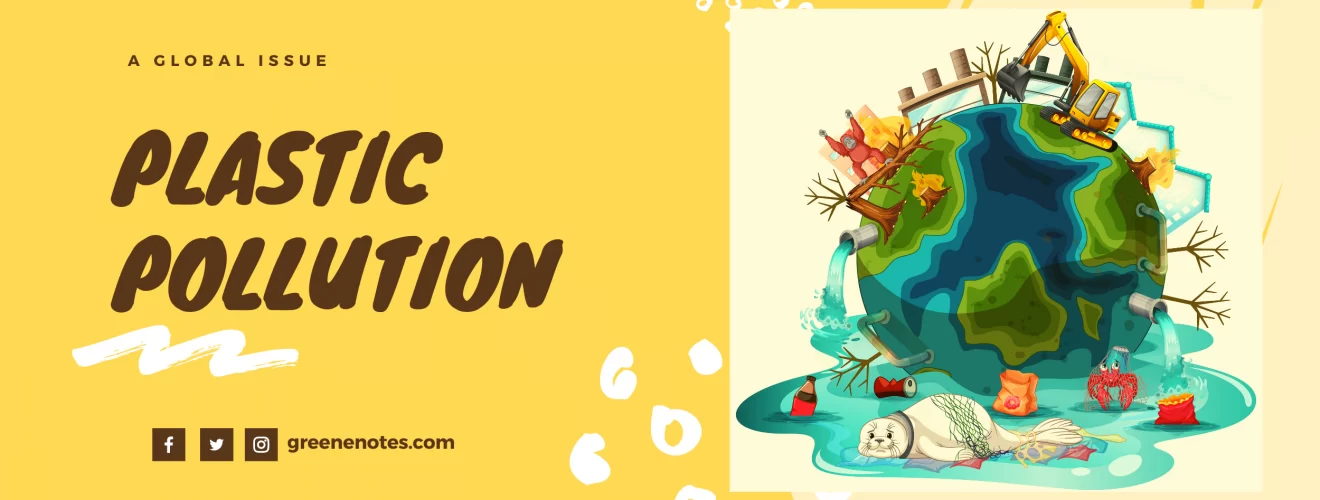Plastics: When Demerits Greatly Outweigh the Merits

Plastics, the widely used synthetic polymer material has a higher molecular weight that is made by using organic compounds such as vinyl chloride, vinyl acetate, ethylene, etc. The versatile properties of plastics are lightweight, low production cost, durability, robustness, thermal insulation, high corrosion resistance, and easily molded to different shapes and products. All these characteristics made it suitable for diverse sectors.
Packaging, construction, public health, medical apparatus, electrical goods, automobiles, household materials, agriculture, and many more are the common industry of plastic usages. Now, single-use plastics have increased at such an alarming rate, and around 85% of medical equipment is produced by using plastics. There is no doubt that plastics have significant advantages and are affordable. But if we see the boundless usage of plastics and open disposal destined it to the ocean. Thus, it leads to detrimental effects on the ocean ecosystem, life below water, and human health as well.
If we weigh the advantages and disadvantages of using plastics, indisputably demerits will vastly outweigh the merits. Because-
Usage of non-renewable resources
Previously plastic materials were extracted from plant-based fibers and now fossil fuels mostly petroleum are used to produce the resources. While the entire world’s manufacturing system use (3-4)% of oil and gas in generating electricity as energy, plastics production alone uses 4% of the world’s gas and oil. Nonetheless, the ever-increasing demand will boost the fossil-fuel cost of plastics that might reach 20% in the next decade.
Release Toxic and Harmful Materials
Plastic contains high potential risks additives such as di-(2-Ethylhexyl) phthalate (DEHP), bisphenol A (BPA), and polyhalogenated compounds. The toxic and harmful materials can get easily immobilized in the resource flow and can badly affect human health like the disruption of the endocrine system.
Lengthier Decomposable Period
The unchanging and non-degradable features of plastics making their disposal one of the most threatening environmental pollutions. Now, researchers believe that some kinds of plastics cannot be fully degraded and decomposed. What can be its next form?
Microplastics, which are less than 5mm and very harmful for ocean biodiversity and human health.
Do you know how many days plastic will take to degrade?
It takes many years. For instance, plastic fishing nets take over 600 years, even plastic bags take 10 to 20 years to decompose naturally. Pathetically, some are estimated to decompose around 1000 years, and the burning issue of single-use plastic took 450 years to decompose.
So, what is your initiative to lessen the use of single-use plastics in your daily life?
Just think and take a step.
Tough to Manage and Contributes to Climate Change
Currently, the whole world is facing a climate crisis and “Climate Change is Real”. Greenhouse gases are responsible for this present environmental crisis.
It is not easy to maintain the gigantic amount of plastic wastes. Although different kinds of management systems such as recycling, downcycling, landfilling, incineration, bioremediation by microbial degradation, and conversion to useful resources are adopted by individual countries.
Nonetheless, recycling plastics and again sending them back to the production process is too costly. Moreover, there needs a continuous loop process of plastic waste collection, segregation, and processing. The fact is that those recycled materials quality are not so well that can be widely applied in the manufacturing industry.
Plastic wastes are the major part of solid wastes and day by day its quantity is increasing. Is it possible to sustainably manage these gigantic plastic wastes?
To manage these vast streams of plastic wastes requires large land for landfilling. But after landfilling, the land will be unfit for other applications. On the other hand, another management system named incineration and pyrolytic conversion of plastic waste streams emits hazardous atmospheric pollutants of hydrocarbons, CO2 (GHG), and persistent organic pollutants.
Ocean Ecosystem to Food Chain

Now, research studies proved that the effects of plastic pollution are not limited to the ocean ecosystem, it is now a concern of human health issue. The accumulation and resistance to degradation properties of plastics making it more hazardous for human health and life below water. We cannot ignore the food chain and our dependence on fish resources.
Humans are getting exposed to many poisonous and detrimental components like DEHP, BPA, and many other toxic chemicals. These can rise serious health problems like endocrine disruption, breast cancer, neurobehavioral changes, developmental impairment (hormonal imbalances, growth abnormalities, and neurological impairment), arthritis, cancer, DNA hypomethylation, and diabetes.
Environmental pollution
Behind every development, there remains a footprint on the environment. Though now environmental issues like plastic pollution drawing attention throughout the world. Yet, is it enough?
If we take a glance at the plastic manufacturing industry, open discharge of wastewater effluents causing odor pollution, deteriorating surface and groundwater quality, and poisoning the water resources and land as well. All these not only affecting the terrestrial and aquatic but also harming human inhabitants directly or indirectly.
The degradation of plastic consequences in the generation of methane gas. And, we all know that methane gas is one of the major contributors to climate change and global warming. Additionally, groundwater can get mixed with harmful chemicals from chlorinated plastics dumped into the adjacent land.
Ocean Pollution
Plastics are the most commonly found pollutants in the ocean as it decomposes very slowly. When plastics are ingested by marine animals as food it starts to decrease gastric enzyme secretion, steroid hormone levels, feeding stimuli, reproduction, and also create gastrointestinal blockage. Among the organic pollutants in the ocean, a high amount of plastic particles is found containing various toxic chemicals including polychlorinated biphenyls (PCBs) and organic pesticides such as bisphenol-A (BPA), polycyclic aromatic hydrocarbons (PAHs), dichlorodiphenyltrichloroethane (DDT), and polybrominated diphenyl ethers (PBDEs).
Negative Effects on Economy
Uses of plastics, beneficial or detrimental?
It is dreadful that every year $80 billion economic loss happened just from the packaging industry. Additionally, two other sectors named textile and construction of buildings signify the uses of plastics about 15% and 16%.
Although many of the items get recycled in the further process, it is a matter of sorrow that those secondary materials won’t be able to stick in the market due to lower quality. Another pity situation is only 14% of the entire world’s plastics are recycled while knowing the dangerous impacts of plastic pollutions. While robust attention is required in recycling and reusing.
Potential Jeopardy from Microplastics
Microplastic is going to be another havoc for us. Microplastics are in the size of <5mm. Now, microplastic pollution is one of the greatest damaging factors to marine life. It is lightweight, moves a very long distance, contains synthetic fibers and heavy metals. The worst effect of microplastic is entering into the food chain as marine life consumes plastics and unwittingly human beings take such seafood. In such a route microplastics comprehending toxins and harmful chemicals that come into the bloodstream and distress human health.
Undoubtedly plastic is one of the revolutionary innovations in the human epoch. Nonetheless, the thriving production and consumption of plastics throwing a challenge for the future generation. The risk and hazards from plastic pollution intensifying as well. Hence, it is crucial to reduce the use of plastics and increase dependency on organic goods. Besides, a sustainable management process is badly needed to flow back to the economy and value chain.
So, what are your management steps to tackle this global crisis? Take action now and say no to plastic products as you can.






